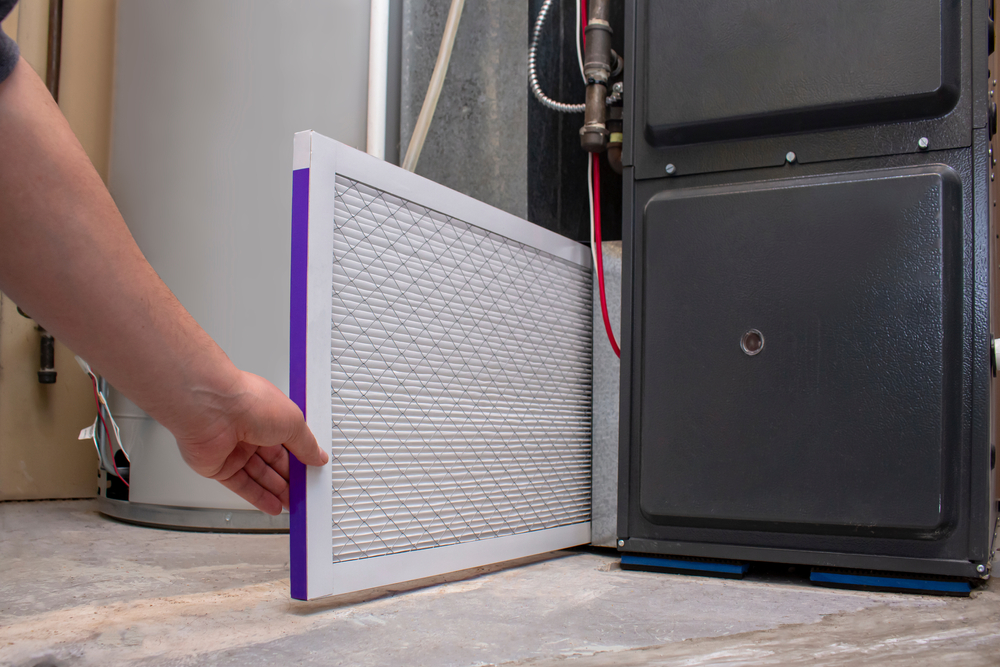How Long Does a Furnace Last?
December 10, 2024
Categories: Heating
Are you thinking about upgrading your furnace? One of the most critical factors to consider when choosing the best heating system for your home is its lifespan. After all, a furnace is a significant investment, and knowing how long it will last can help you plan financially and ensure your home stays comfortable for years to come.
The good news is that furnaces have a pretty decent lifespan, but that doesn’t mean they’re immune to wear and tear. Regular maintenance is essential if you want your system to reach its full potential. Just like a car needs regular oil changes, your furnace needs consistent care to keep running smoothly and efficiently for years to come.
Keep reading to find out how long you can expect your furnace to last and how you can extend its life expectancy.
What’s the Average Lifespan of a Furnace?
The lifespan of a furnace largely depends on its type — whether it’s gas or electric—as well as how well it’s maintained over the years. It’s helpful to note that both types of furnaces can outlast their average life expectancy if homeowners prioritize annual maintenance and address repairs promptly. Let’s break this all down a little further, starting with the average lifespan for gas and electric furnaces.
Gas Furnaces
Gas furnaces are the most common type of heating system in homes. On average, a well-maintained gas furnace can last 15 to 20 years. The combustion process does cause some wear and tear over time, especially if routine maintenance is neglected. Additionally, while high-efficiency gas furnaces can often reach the upper end of the lifespan spectrum, without regular inspections, problems like a damaged blower motor or broken ignition could cut their lifespan short.
Electric Furnaces
Electric furnaces tend to have a slightly longer average lifespan compared to gas units, typically lasting 20 to 30 years. Since electric furnaces don’t rely on combustion, they don’t have as many moving parts that could fail prematurely. Of course, they do require routine care to keep components like the fan motor and heating elements in optimal condition.
Factors That Affect the Average Furnace Lifespan
While each type of furnace comes with its own guidelines for life expectancy, there are no guarantees that your new furnace will last that long. An array of factors come together and affect the exact lifespan of your heating system. These factors include:
Routine Maintenance
Skipping annual furnace maintenance can lead to a shorter lifespan. Regular tune-ups from a certified technician can allow you to catch problems early, whether it’s a damaged belt, a clicking noise from the ignition process, issues with the flame sensor, or something more complicated.
Usage and Demand
The more you use your furnace, the more strain you put on its components. A furnace in Northeast Ohio works hard during cold winters, especially in homes with multiple levels or poorly designed air duct systems. Additionally, frequent and sudden temperature fluctuations can put undue stress on the system, reducing its efficiency and longevity even further. While these problems can be hard to combat, using a programmable thermostat to manage heating efficiency can help reduce strain.
Quality of the Unit
Not all heating systems are created equal. High-efficiency furnaces from reputable manufacturers are designed to last longer and perform better than cheaper alternatives. Investing in a reliable brand upfront can save you money and headaches down the line.
Proper Sizing
A furnace that’s too small for your home will struggle to keep up with demand, while an oversized furnace will cycle on and off too frequently. Both situations can lead to increased wear and tear, shortening the furnace life expectancy.
Quality of Installation
The quality of the initial installation plays a huge role in determining how well your furnace performs over time. A poorly installed furnace may experience operational issues, uneven heating, or premature wear and tear. Always hire a qualified technician like Martinov Home Solutions to ensure your furnace is installed correctly.
Tips for Extending the Life of Your Furnace
Want to get the most out of your furnace? Follow these tips to maximize its lifespan:
- Schedule Annual Maintenance: Regular maintenance is a must for keeping your system in peak condition. An HVAC technician can clean the combustion chamber, check for gas leaks, inspect the heat exchanger, and ensure the fan motor and ignition process are all working properly.
- Change the Air Filter Regularly: Dirty filters restrict airflow, forcing your gas or electric furnace to work harder and increasing energy costs. Replace the filter every 1-3 months, especially during heavy usage.
- Keep Ducts and Registers Clean: Blocked furnace registers or loose ducts can hinder airflow, leading to uneven heating and higher utility bills. Clear away debris and make sure vents aren’t obstructed by furniture.
- Use a Programmable Thermostat: A programmable thermostat helps optimize your furnace’s usage by reducing unnecessary strain. By setting the temperature lower when you’re asleep or away from home, you can give your furnace a break and save on energy costs.
- Watch for Problems: Pay attention to troubling signs like yellow flames, clicking noises, or sudden temperature changes. If you detect any of these problems, get your furnace inspected right away, as they could indicate serious issues that require professional furnace repairs.
When Is It Time for a New Furnace?
Even with the best care, every furnace has its limits. If your system is over 15 years old and you’re dealing with frequent repairs, high energy bills, or uneven heating, it might be time to consider a new model. A high-efficiency unit not only lasts longer but also provides better energy efficiency, reducing your utility bills in the long run.
Speak to Martinov Home Solutions About High-Efficiency Furnaces
Now that you’ve seen how long you can expect a new furnace to last, it’s time to take the leap and get the installation process in motion! All you need to do is reach out to the professional HVAC technicians at Martinov Home Solutions, and we’ll take care of the rest — everything from helping you understand your options to setting up and configuring the new system and providing ongoing care. We look forward to helping you and your family stay warm all winter long. So, don’t wait to reach out today for a furnace installation service in Akron, OH, or one of the surrounding areas.

